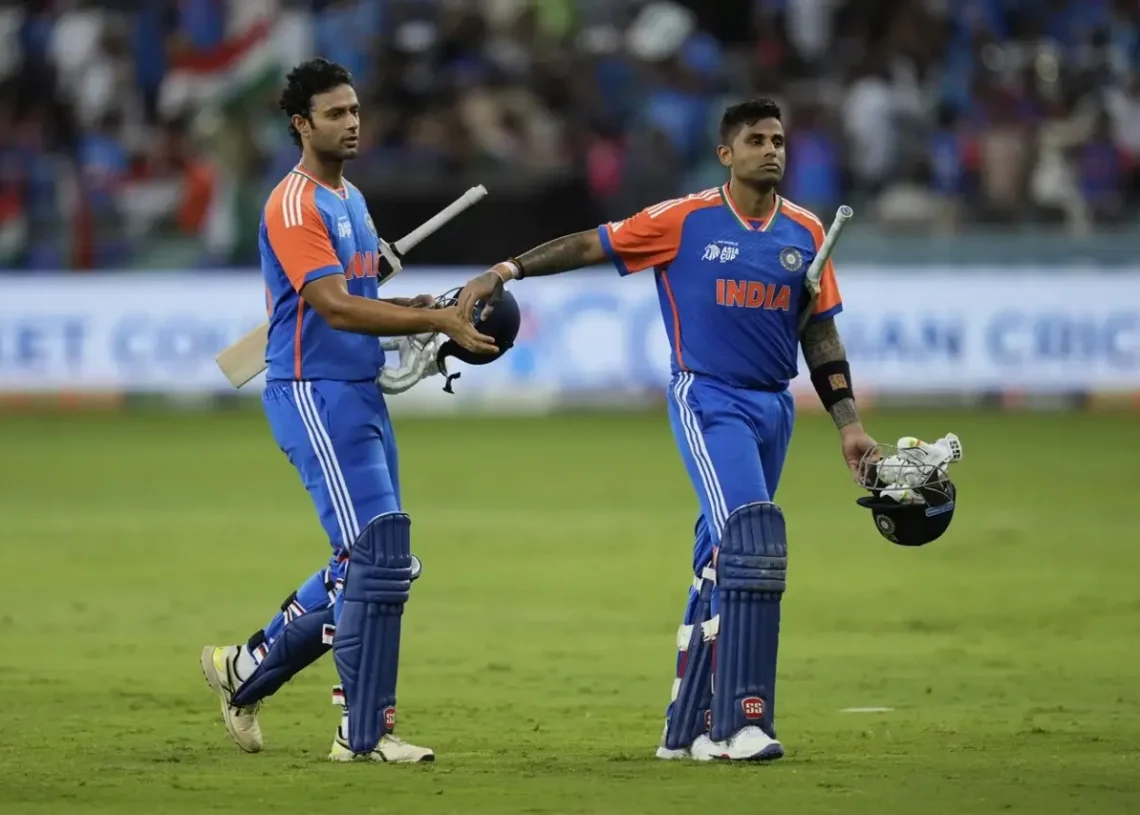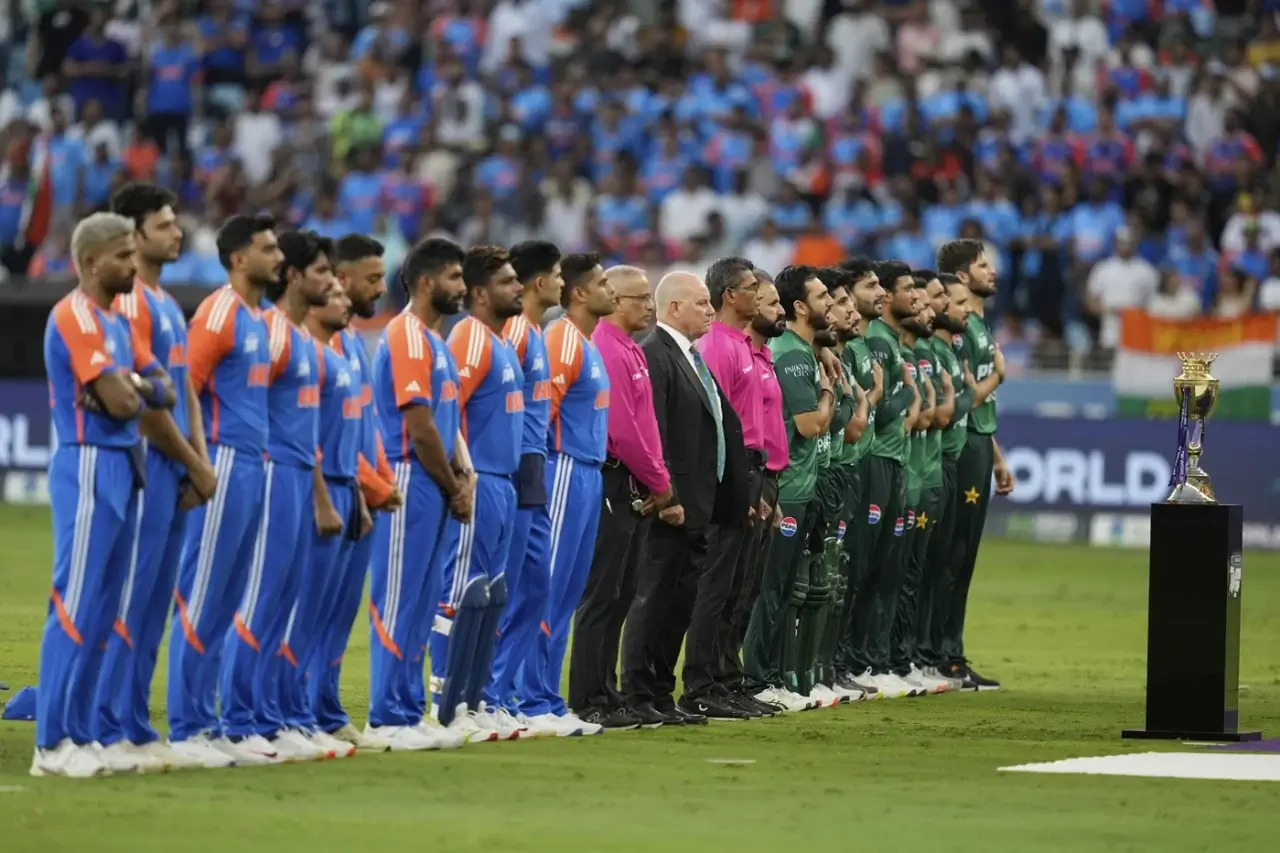A tense scene followed India and Pakistan at Dubai on Sunday evening. PCB protests the Handshake Row: Pakistan said referee Andy Pycroft stopped handshakes at the toss, allegedly. PCB chairman Mohsin Naqvi demanded the immediate removal of Pycroft from the tournament. Naqvi made the demand public while also acting as ACC president.
The PCB lodged a letter with ICC general manager Wasim Khan on Monday. The board said Pycroft spoke separately to both captains before the match. Pakistan captain Salman Agha skipped the post-match presentation in protest. India won by seven wickets, with Suryakumar Yadav dedicating the win publicly in the India-Pakistan match.
Suryakumar said his team stood with the victims of the Pahalgam attack. He said some things are ahead of sportsman spirit and national duty. Pakistan coach Mike Hesson said his players were ready to shake hands. The match ended with clear winners on the field and tension off it.
The dispute may affect the Super Four meeting in Dubai on Sept 21. Pycroft has two more group matches scheduled, including Pakistan versus UAE. Removing a match referee would need ICC approval and host cooperation from the BCCI.
Why does the PCB demand Pycroft’s Removal?
PCB officials say Pycroft overstepped his duties at the toss. They claim he told both captains not to shake hands. This formed the core of the Asia Cup controversy complaint. Naqvi described the action as against the laws and spirit.
The PCB letter went to ICC general manager Wasim Khan. It demanded the immediate removal of Andy Pycroft from the event. Sources say the PCB cited breaches of the MCC Laws. The complaint also referenced alleged violations of the ICC code.
Board sources noted Pycroft spoke separately to both captains. Pakistan manager Naveed Cheema asked tournament officials for a formal reply. Tournament director Andrew Russell reportedly linked the move to the BCCI. The PCB said Russell gave no adequate justification for the actions.
Pakistan hinted at a possible boycott of the upcoming match. They reportedly warned they may skip the UAE fixture if unresolved. Such a boycott would heighten the match referee removal debate. Event integrity and scheduling would face immediate and serious strain.
The PCB position mixes legal claims with political sensitivity on the field. Naqvi amplified the protest publicly as PCB chairman and ACC president. The dispute shows how governance and national policy can overlap. The board seeks a formal ICC ruling before the Super Four match.
Rulebook and Ethics: What’s at Stake?
Match referees must act neutrally and avoid influencing team conduct. ICC guidelines limit what a referee may request from captains. The MCC Laws protect customary gestures like post-match handshakes. If a referee intervenes in such gestures, it raises ethical questions.
The PCB argues Pycroft undermined neutrality by advising captains not to greet. Such an act, if proven, may violate the spirit of cricket. Boards will look to the ICC for an impartial ICC investigation. A clear finding could reshape expectations for referees in tense matches.
The referee also has a duty to record protests and report facts. An independent probe should focus on statements given to team managers. Officials must balance host security, national policy, and sporting fairness. The outcome will clarify limits on referee discretion during political disputes.
Any ruling must be transparent to preserve tournament credibility and trust. A proper process can restore focus to the match and fair competition.
Reactions and Possible Consequences
Reactions varied from the boards, coaches, and many match observers. India said its government and the BCCI were aligned on the stance. The Mumbai Indian player and Current India T20 Captain Suryakumar Yadav said the win was dedicated to the armed forces and the victims. He said some matters are ahead of sportsman spirit, publicly noting.
Pakistani coach Mike Hesson expressed disappointment at the post-match behavior. Hesson said his team was willing to shake hands after the match. Pakistan captain Salman Agha skipped the post-match presentation in protest. The absence underscored tension and left officials seeking a clear reply.
Media outlets highlighted the India-Pakistan handshake issue across platforms and feeds. Fans and commentators debated whether sport should reflect wider political choices. Mohsin Naqvi labelled the actions unsporting and warned of consequences. He has pressed for official action and a probe by higher bodies.
Removing Pycroft would require ICC coordination and host cooperation by BCCI. If Pakistan boycotts the UAE match, tournament planning would face disruption. Suspension or boycott would affect Super Four qualifications and match integrity. Officials must weigh competitive fairness against national positions and security.
Impact on the Tournament and Next Steps
The ICC reply is the immediate step in this dispute. It must confirm whether Pycroft told captains not to shake hands. A clear finding would guide whether a referee can be withdrawn. If Pycroft is sanctioned, the ICC would arrange a replacement quickly.
Host cooperation by the BCCI is needed for any personnel change. The ACC and the tournament director must be kept fully informed. The dispute timetable may affect Pakistan’s game versus the UAE on Wednesday. Pakistan must beat the UAE to reach the Super Four stage.
Officials should publish findings and decisions to maintain public trust in sport. How the ICC handles this will set a precedent for future sensitive matches. Fans and boards alike will watch the next official statements closely.
Conclusion
The handshake row has turned a single match into a larger dispute. The PCB wants immediate action and removal of Andy Pycroft from the Asia Cup. The ICC must investigate the complaint and decide on a referee replacement. How boards, hosts, and referees handle this will shape cricket’s response.
A swift and transparent ICC investigation would help clarify facts quickly and fairly. An impartial ruling would show sport values fair conduct while respecting host security. Removing a referee will need careful coordination among ICC, ACC, and the BCCI. Communication and published findings will help restore trust and calm tensions.
Pakistan’s qualification hopes and the Super Four schedule face immediate pressure. Fans, players, and officials want a clear, timely, and reasoned decision. The coming days must balance law, sporting rules, and diplomatic sensitivity. A fair, timely decision will restore focus to cricket on the field.





